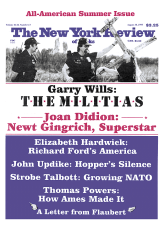Note: “The Magpie” and “I will not in grey hours” are among William Butler Yeats’s unpublished early poems. “The Magpie” was discovered among the papers transferred by Michael Butler Yeats, the poet’s only son, to the archives of the National Library of Ireland. The poem probably dates from the early to middle 1880s, when Yeats, still in his late teens, was unknown and had published hardly anything. The four-stanza love lyric provides an early example of his lifelong fondness for eight-line stanzas, a form he used in mature poems such as “Sailing to Byzantium” and “In Memory of Major Robert Gregory.” The poem also shows him experimenting with the dialogue form that would mark later verse like “Ego Dominus Tuus” and “Vacillation.”
Approximately a decade later, in 1894, Yeats had moved beyond the conventional situation and familiar meter of “The Magpie” to the more original voice and rhythm of “I will not in grey hours” (which I found in a volume of manuscripts then owned by Michael Butler Yeats). This poem almost certainly reflects Yeats’s thwarted love for Maud Gonne, the brilliant and beautiful Irish nationalist organizer whom he had met in 1889 and courted unsuccessfully during the following years. The “breath of slander” may refer to contemporary political attacks on Gonne, and the “poor foolish book of rhyme” at the end not only to Yeats’s printed works but also to an elaborate manuscript volume that he had prepared for her. In the decade between the two love poems, Yeats had begun to discover his own poetic voice.
—George Bornstein
THE MAGPIE
Over the heath has the magpie flown
Over the hazel cover,
Ah why will a magpie live alone
He waits for the lady and lover.
“What may be the sadness that ends your smile?”
She said, “my peace is o’er, love”
“I am going afar for so brief a while”
She said, “We must no more, love.”
They stood for the swish of the mower’s blade
As they went round the meadow,
And under him as he sang and swayed
Moved his meridian shadow.
“The ruddy young reaper he sings be glad
In the sphere of the earth is no flaw, love.”
She said, “He is singing all lives grown sad
He knows no other law, love.”
The grass and the sedge and the little reed wren
A sociable world were talking
And the water was saying enough for ten
As they by the stream went walking.
“The grass and the sedge and the little reed wren
Are saying it low and high, love,
There’s a feast in the forest and mirth in the fen.”
She said, “Ah how they sigh, love.”
He flew by the meadow and flew by the brake
She saw him over the flag fly
Down by the marsh, with his tail a-shake
Alone with himself the magpie.
“What may be the sadness that ends your smile?”
She said, “My peace is o’er, love.”
Ah who with folly from love beguiled
She said, “We must no more, love.”
(Early to Middle 1880s)
I WILL NOT IN GREY HOURS
I will not in grey hours revoke
The gift I gave in hours of light
Before the breath of slander broke
The thread my folly had drawn tight,
The little thread weak hope had made
To bind two lonely hearts in one
But loves of light must fade and fade
Till all the dooms of men are spun.
The gift I gave once more I give
For you may come to winter time
But you white flower of beauty live
In a poor foolish book of rhyme.
(March 10, 1894)
This Issue
August 10, 1995



